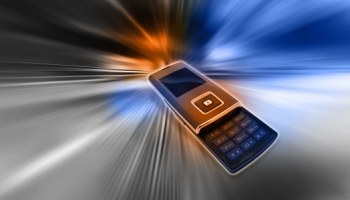Mobile operator O2 has become the first network to take advantage of Ofcom’s decision to allow 2G spectrum to be used to deliver 3G services.
O2 today switched on its new “superfast” 3G network, across London, which uses the 900MHz spectrum. Based on previous trials in Leeds, Birmingham and Manchester, O2 claims claims the use of 900MHz 3G offers a 50 percent increase in network capacity and a 30 percent improvement in download speed.
However, only customers using compatible devices, such as the iPhone 4, Google Nexus S, HTC Wildfire, HTC Mozart, and Samsung’s Galaxy S, can take advantage of the new ‘3G900’ service.
“We’ve acted quickly to bring the benefits of 3G over 900MHz spectrum to our customers and we’re thrilled with the results,” said O2 chief technology officer Nigel Purdy. “Quite simply, on O2’s network, more customers can use more data, and experience it quicker.”
3G services on 2G spectrum
Until recently, spectrum in the 900MHz and 1,800MHz bands were reserved exclusively for 2G services, such as voice calls and text messaging. However, in January the regulator Ofcom announced that mobile operators in the UK would be able to offer 3G services using 2G spectrum.
 While the move could help operators increase mobile broadband speeds and improve the quality of coverage – particularly in rural areas – the UK’s smallest operator 3UK claims that the measures could “jeopardise the competitive environment” and even result in the company being sold.
While the move could help operators increase mobile broadband speeds and improve the quality of coverage – particularly in rural areas – the UK’s smallest operator 3UK claims that the measures could “jeopardise the competitive environment” and even result in the company being sold.
This is because O2 and Vodafone own the vast majority of the 2G spectrum, which has a low frequency, giving it very good coverage at long distances and indoors. By allowing those with 2G spectrum to re-use it for 3G services, Ofcom has handed these operators a massive free boost that they have done nothing to earn, according to Kevin Russell, chief executive of 3.
“Healthy competition is critical for UK consumers using mobile services and Ofcom and the government must address the significant competitive distortions they have now created in pushing through the reform of spectrum currently used for 2G mobile services,” said Russell at the time.
Redressing the balance
Orange and T-Mobile do own 2G spectrum, but it is in the 1,800MHz band, which can’t penetrate the same distances as the 900MHz signals because of its higher frequency.
Meanwhile, Ofcom is preparing to auction off the 800Mhz and 2.6Ghz high-speed data spectrum in the first quarter of 2012, which it claims will “fuel an explosion” of 4G networks. The auction has been made possible thanks to spectrum being freed up by the move from analogue to digital television in the UK.
Ofcom has promised that the forthcoming 4G auction will keep competition healthy in the UK. According to David Stewart, director of Ofcom’s Competition Policy Group, the one thing that UK operators fear above all else is being left behind in the race for good spectrum, so it is of vital importance that the distribution process is fair and unbiased.




